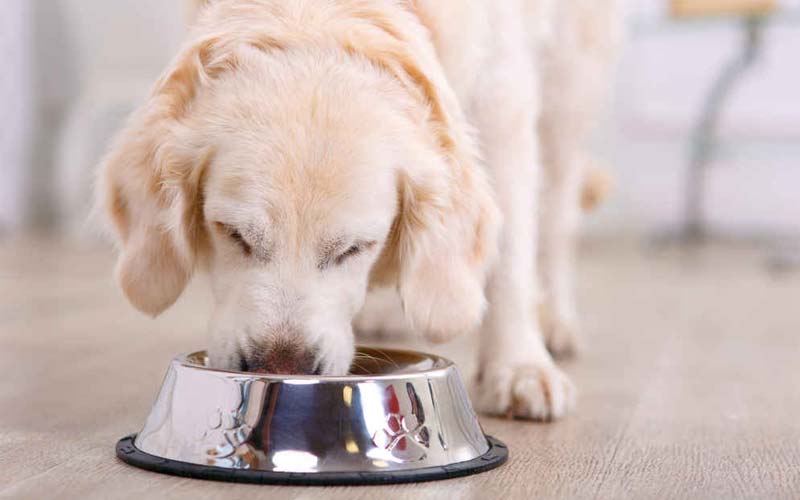Seeing your dog throw up undigested food can be concerning and leave you wondering what’s causing the issue. While occasional vomiting might not be alarming, frequent episodes could signal an underlying problem that needs attention. Understanding why your dog regurgitates food is key to addressing the issue effectively and ensuring their health.

In this article, we’ll explore 10 common reasons dogs throw up undigested food. From simple habits like eating too quickly to more serious conditions such as digestive blockages, you’ll gain insight into potential causes and learn when it’s time to consult a veterinarian. With this knowledge, you can take proactive steps to keep your furry friend happy and healthy.
1. Differentiating Vomiting and Regurgitation
When a dog throws up, it’s important to determine whether they are vomiting or regurgitating, as these two processes have different causes and implications.
Vomiting is an active process involving abdominal contractions to expel food or fluid from the stomach or upper intestine. It’s often preceded by warning signs like drooling, retching, or nausea. Vomited material may appear partially digested, mixed with bile, or have a sour odor.
Regurgitation, on the other hand, is a passive process where undigested food or fluids are expelled from the esophagus without any abdominal effort. It typically occurs shortly after eating, and the regurgitated material often retains its original shape and consistency.
Why It Matters
Distinguishing between vomiting and regurgitation is crucial for pinpointing the underlying cause. Vomiting usually indicates issues with the stomach or intestines, such as gastritis, blockages, or infections. Regurgitation points to problems in the esophagus, like megaesophagus or physical obstructions.
Recognizing the difference helps pet owners communicate effectively with their veterinarian, ensuring quicker and more accurate diagnosis and treatment for their dog. Monitoring additional symptoms, such as changes in appetite or behavior, can provide further clues about the root cause.

2. Top 10 Reasons Dogs Throw Up Undigested Food
1. Eating Too Quickly
Dogs that eat too fast often swallow large amounts of air along with their food, overwhelming their digestive systems. This can lead to regurgitation as the body struggles to process the sudden intake. To prevent this, consider using a slow-feed bowl, spreading food out on a flat surface, or dividing meals into smaller portions throughout the day.
2. Stress or Anxiety
Stressful situations, such as changes in routine, loud noises, or separation anxiety, can disrupt digestion and lead to regurgitation. Creating a calm environment during feeding—free from distractions or competition with other pets—can help alleviate this issue.
3. Esophageal Issues
Conditions like megaesophagus, where the esophagus cannot move food effectively to the stomach, can cause regurgitation. Common signs include difficulty swallowing, coughing, and regurgitating food shortly after meals. Veterinary diagnosis and treatment are essential, often involving dietary adjustments and medication.
4. Food Intolerance or Allergy
Some dogs react poorly to specific ingredients in their diet, leading to gastrointestinal upset. Symptoms include vomiting, diarrhea, or itchy skin. Switching to a hypoallergenic or limited-ingredient diet can help identify and manage these triggers.
5. Inappropriate or Spoiled Food
Feeding your dog table scraps, spoiled food, or items they shouldn’t eat can irritate their digestive system. Always store pet food properly, avoid giving them human food unless approved, and ensure they don’t have access to trash.
6. Digestive Blockages
Foreign objects, such as toys, bones, or sticks, can obstruct the digestive tract, preventing food from passing through. Symptoms include lethargy, abdominal pain, and persistent vomiting. If a blockage is suspected, immediate veterinary intervention is critical.
7. Gastritis
Eating something harmful—like trash, chemicals, or spoiled food—can inflame the stomach lining, causing vomiting. To prevent this, monitor your dog closely, remove potential hazards, and provide safe chew toys to satisfy their urge to explore with their mouth.
8. Acid Reflux
Acid reflux occurs when stomach acid flows back into the esophagus, irritating the lining and triggering vomiting. Symptoms include burping, drooling, or regurgitation. Feeding smaller, more frequent meals and avoiding fatty foods can help manage mild cases.
9. Motion Sickness
Traveling in a car or other vehicles can upset a dog’s stomach, especially if they’ve eaten beforehand. To reduce motion sickness, feed your dog several hours before travel, use a harness for stability, and provide fresh air or motion sickness medication if recommended by a vet.
10. Serious Illness
Persistent vomiting can signal underlying health issues such as pancreatitis, kidney disease, or infections. If vomiting is accompanied by other symptoms like fever, weight loss, or dehydration, consult a veterinarian immediately for a thorough evaluation.
These ten causes highlight the importance of observation and prompt action when your dog regurgitates food. By identifying the underlying reason, you can take the necessary steps to address the problem and ensure your dog’s well-being.

3. Preventative Measures
Preventing your dog from throwing up undigested food often involves simple, proactive steps. Here are practical strategies to minimize the risks:
1. Controlled Portion Sizes
Overfeeding can overwhelm a dog’s digestive system, making it harder for food to move effectively through the stomach and intestines. Feed your dog appropriate portions based on their size, age, and activity level. Consult your veterinarian to determine the ideal amount and frequency for your pet’s meals.
2. Avoid Strenuous Activity After Meals
Exercise immediately after eating can disrupt digestion and lead to regurgitation. Allow your dog to rest for at least 30 minutes to an hour after meals before engaging in play or walks. This downtime helps the digestive system process food more efficiently.
3. Regular Veterinary Check-Ups
Routine vet visits are essential for identifying and addressing potential health issues early. Your veterinarian can check for underlying conditions like acid reflux, food allergies, or esophageal disorders that might cause regurgitation. Regular health assessments ensure your dog receives appropriate care and dietary adjustments as needed.
By incorporating these preventative measures into your dog’s routine, you can significantly reduce the chances of regurgitation while promoting overall digestive health. Small, consistent changes can make a big difference in keeping your dog comfortable and healthy.

4. When to See a Veterinarian
While occasional vomiting or regurgitation may not always indicate a serious issue, there are warning signs that warrant immediate veterinary attention. Recognizing these symptoms can make a significant difference in diagnosing and treating underlying conditions.
1. Vomiting with Blood or Bile
If your dog’s vomit contains blood (red or coffee-ground appearance) or bile (a yellow-green fluid), it could indicate a serious problem such as gastrointestinal bleeding, ulcers, or liver issues. These symptoms require prompt evaluation by a veterinarian.
2. Accompanying Symptoms
Persistent vomiting accompanied by other concerning signs—like diarrhea, lethargy, fever, weight loss, or refusal to eat—suggests a deeper health issue. Conditions like infections, pancreatitis, or kidney disease may be at play and need immediate professional care.
3. Frequency and Duration
If your dog throws up repeatedly in a short period or continues to vomit over several days, it’s crucial to consult a vet. Chronic vomiting can lead to dehydration, nutrient deficiencies, and other complications that may worsen without treatment.
Why Timely Intervention Matters
Delaying veterinary care can allow minor issues to escalate into life-threatening conditions. A veterinarian will perform a thorough examination, which may include blood tests, imaging, or endoscopy, to pinpoint the cause and recommend an appropriate treatment plan. Early intervention not only prevents further discomfort but can also save your dog’s life.
Being vigilant about these warning signs and seeking professional advice when necessary ensures your dog receives the care they need to recover and stay healthy.

Conclusion dogs throw up undigested food
In conclusion, while occasional vomiting or regurgitation may be common in dogs, it’s important to understand the potential causes and how to address them. From eating too quickly and stress to more serious conditions like esophageal issues or digestive blockages, the reasons behind undigested food being expelled can vary widely.
By recognizing the difference between vomiting and regurgitation, taking preventative measures like controlling portion sizes, and knowing when to seek veterinary care, you can help your dog maintain optimal digestive health. Remember, prompt attention to symptoms such as vomiting with blood, accompanying diarrhea, or unusual lethargy can prevent more serious health issues from developing.
If you notice any concerning symptoms in your dog, don’t hesitate to reach out to your veterinarian. Timely intervention is key to ensuring your pet’s well-being. Keep monitoring their health and provide the necessary care to ensure your furry friend remains happy and healthy.